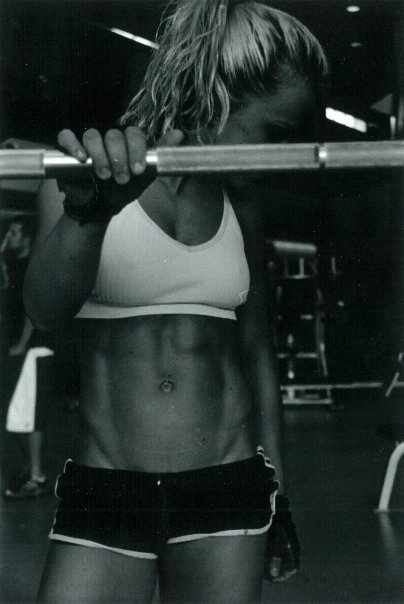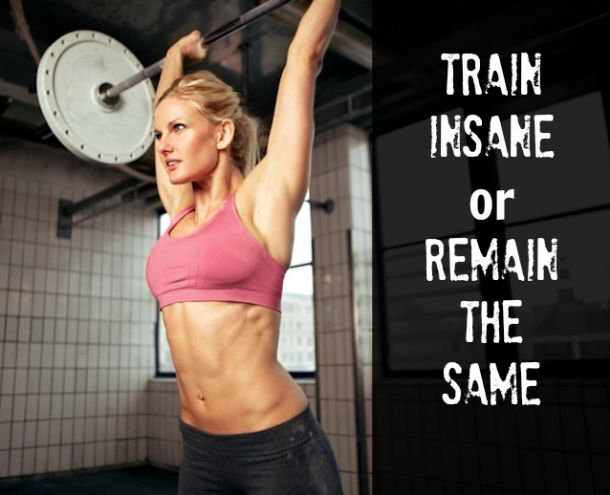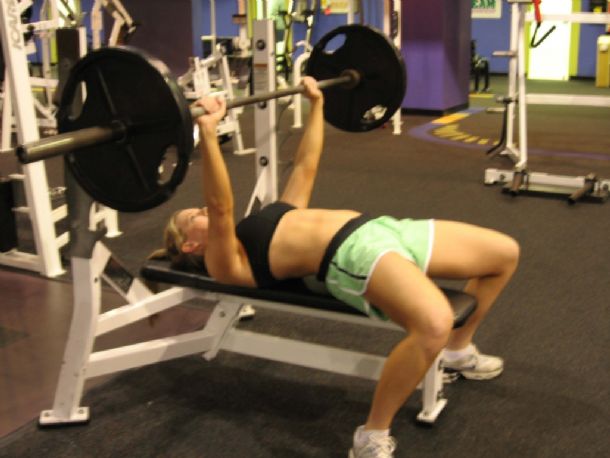|
Say what?! Is being really lean really worth it? This probably sounds like a crazy question coming from a trainer who helps clients reach their fat-loss and physique goals. Before we get started, let me say that I realize this is a very ambiguous question. ''Really lean'' is relative, and I will tell you up front that I don’t have an answer for you. Only you have that answer for you. This blog post is simply intended to help you realize a few things: 1. Everybody is different. 2. Some of us can maintain leaner physiques than others. 3. Going beyond a healthy level of leanness for YOU is a stressor. 4. It’s not normal, and it may not even be healthy, to walk around shredded all the time. 5. How lean do you want to be, and will you sacrifice what it takes to get there? Let’s explore each of these. 1. Everybody is different. I have a saying: ''If you want longer, leaner muscles, get different parents.'' We were all given a unique genetic code that affects how our bodies look. I will never be petite, or skinny, or naturally tan. (I tried to fight this simple fact for many years, and I almost destroyed my skin in the process.)  Ouch. It hurts me just to look at this. There are things we can do to make the best of our genetics, of course, but at the end of the day, we are the product of our parents. (Darn you Dad, and your Scotch-Irish heritage!) The sooner you accept this, the more you can focus on making the most of what you’ve been given, as opposed to trying to change things that won’t change. 2. Some of us can maintain leaner physiques than others. We all know that person who eats whatever they want, doesn't exercise, and still has an absolutely gorgeous and lean physique. (It’s even more annoying when they have natural muscle tone too, right? I mean…how is that even fair?!?) We also all know the person who is very strict with their diet, exercises religiously, gets enough sleep, and takes great care of themselves, yet they struggle with carrying more body fat than they’d like. Remember, we all have a genetic predisposition to look a certain way. If you come from a very lean family, chances are, you can maintain a leaner physique than someone who comes from a heavier family. (I am not ignoring the environmental factors that come into play here in terms of the foods you were/weren’t given as a child, and the activity levels encouraged by leaner families vs. heavier families, because I know that plays a role. Just trying to keep things simple.) I have a few friends who walk around quite lean on a regular basis with no problems. They eat well and exercise hard, but they feel really good and have a ton of energy when they are really lean. My friend Siouxsie (below) consistently rocks a lean physique and feels good while doing it.  Photo Credit: Siouxsie Gisselberg  No wonder I look angry here. I felt like garbage! This is frustrating, but I have come to terms with it. I am learning to be comfortable with the level of leanness where my health, performance, aesthetics, and lifestyle intersect. 3. Going beyond a healthy level of leanness for YOU is a stressor. Above, I mentioned that when I’ve gotten very lean in the past, I experienced fatigue, heavy limbs, foggy-headedness, and I lost my period. Those symptoms don’t generally happen when your body is healthy and functioning well, right? In some instances, it’s just your body adjusting to its new ''set point,'' but not always. Your ''set point'' is the body weight or body fat level to which your body has become accustomed. It may or may not be a healthy weight or body fat level, but if you have been there for a while, your body often fights to keep you there. Once you have maintained a new ''set point'' for a reasonable amount of time (6-12 months), it becomes easier to stay there. Just ask anyone who has lost or gained a significant amount of weight in a short period of time. Until they have maintained their new weight for a while, it’s a struggle to stay there. The body likes to maintain homeostasis because it’s safe. Hormone levels, blood pH, heart rate, blood pressure…all of these things are tightly controlled, and if they go too far in one direction or the other, we are in danger. Your body generally doesn’t like large weight fluctuations, either. If you try to get leaner than where your body is comfortable, it will fight back. We have a saying at my gym: ''If you don’t slow down, your body will slow you down.'' That’s what your body is doing if you are trying to get leaner and you start experiencing symptoms similar to what I listed. 4. It’s not normal, and it may not even be healthy to walk around shredded all the time. My good friend Jen Comas Keck touched on this in her article, ''Looking Fit Doesn’t Necessarily Mean Being Healthy.'' If it were ''normal'' to walk around super lean all of the time, more people would be really lean. That’s kind of common sense, right? Not to beat a dead horse, but if you aren’t someone who runs lean naturally, trying to maintain extreme levels of leanness is not healthy. It’s frustrating, because with the surge in social media over the last several years, we have become bombarded with images of our favorite fitness professionals (each of us looking our very best, no doubt), but even worse are the ''fitspo'' (short for "fitness inspiration") posters. These are images of extremely lean women with motivational sayings like, ''Winners never take a day off!'' or, ''Train insane or remain the same.''  I’m sorry, what? Never take a day off? Train insane? Umm, how about the importance of recovery? How about intelligent training? These images give us a false sense of normalcy, and cause many of us to feel dissatisfied with our bodies because we are chasing unhealthy and unrealistic goals. 5. How lean do you want to be, and will you sacrifice what it takes to get there? I realize that these are some very tricky questions I am posing. It’s hard to know how lean we want to get, because when we achieve that level of leanness, oftentimes it’s not enough. It’s the same with strength training. I thought that when I achieved a 135-pound bench, a 225-pound squat, and a 315-pound deadlift, I would be satisfied. Pfffft. Yeah, right. I’ve smoked each of those numbers and I am not even close to satisfied. Leanness can be the same way.  At one point, I thought this would satisfy me. I was dead wrong. You don’t necessarily have to have a solid answer for these questions, but it is something to think about. As an example, there is a young woman who trains at my gym and she was a D1 college soccer player. She is naturally slim, athletic, and lean, but she had mentioned wanting to lose some fat in her lower body. Her diet is great, her training is great, and she takes good care of herself. All that being said, she does enjoy the occasional cupcake, beer, or glass of wine (or two). We were discussing what it would take for her to get leaner, and after she told me about her diet and lifestyle, I saw no major red flags. I came to the conclusion that if she wanted to get leaner, she would need to get significantly stricter with her eating, or make other lifestyle sacrifices, so I asked if she was willing to do that. Was she willing to get a LOT more strict to possibly see some SMALL changes in her physique? Her answer was no. And THAT IS OK. Know thyself, my friends. If you don’t want to make sacrifices (big or small) to change your body, then that is your prerogative. This woman has found the spot where her aesthetics, performance, health, and lifestyle intersect. Maybe none of them are exactly where she wants them to be, but she has found a solid balance. If you would prefer to be extremely lean, and it’s worth it to you to skip social events, get in bed by 9 p.m. every night, and train twice a day to get there, that’s fantastic. Do it. You are choosing aesthetics over lifestyle, and probably over performance and health, but if you want it, then do it. Figure out what you want. Figure out what it takes to get there, and then decide if it makes sense for your life. Is being lean really worth it? I don’t know…you tell me. |
More From SparkPeople
|





















